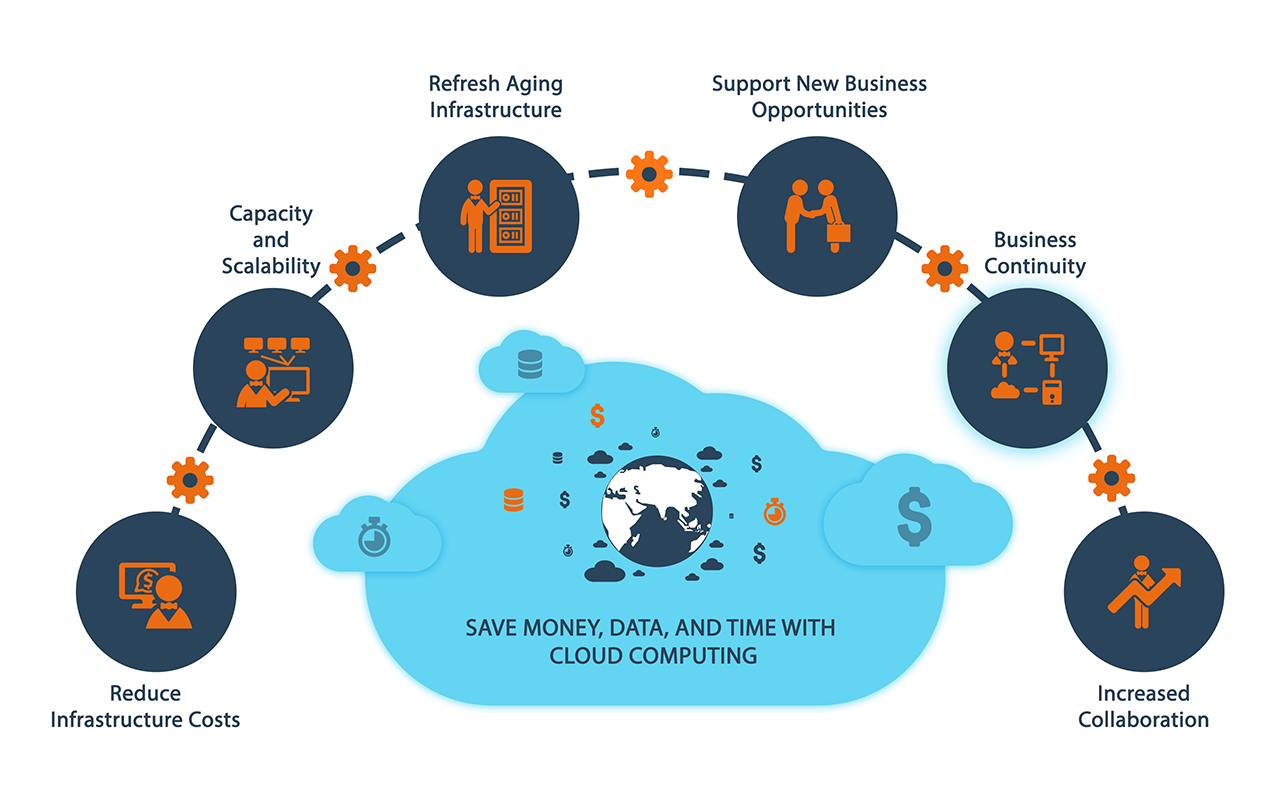Table of Content
By integrating cloud computing into their workflow, enterprises can enhance themselves in many various features. Also, with the cloud, it’s attainable to share one version of a single file with multiple individuals simultaneously, providing control while on the similar time facilitating a extra streamlined collaboration. In today’s reality, when data is turning into a really useful commodity, it’s essential for any organization to determine control over its sensitive and controlled information. We wouldn’t need sensitive buyer data to get into the incorrect arms, even to untrained and/or potentially malicious workers.
Cloud suppliers additionally present backup techniques for files, databases, supply code, and more. In a worst-case situation, any lost information may be restored from backups in no time. This scaling could be carried out in a matter of seconds or minutes, which is nice for a company that's growing shortly.
More Flexibility
On the cloud, you can scale up or scale down your operational resources and storage rapidly. Cloud computing fits you according to your needs and allows flexibility when your wants change. It removes the communication bottlenecks of conventional IT solutions and makes access to human assets working in different places a lot sooner and easier. However, it is a lengthy and expensive course of, involving many infrastructure calls for, hardware installation, and long deployment intervals. The conventional way of building the IT trade is by buying servers, putting in hardware, upkeep duties, regular improve tasks, and installing software program.
The following are the most usually mentioned advantages of cloud computing, together with advantages for medium to big firms, NGOs, and specific other organisations. With an on-premises knowledge middle, the business is essentially responsible for making certain consistent availability for functions. If the sudden occurs (power outage, unintended data deletion, lack of internet connectivity, etc.), the business’ enterprise functions will suddenly be unavailable. For example, CSPs may need bodily safety at their information middle similar to security checkpoints to prevent unauthorized entry into server rooms, CCTV monitoring, biometric access systems, and more. Meanwhile, their cybersecurity tools, similar to firewalls, antivirus/antimalware, and intrusion detection techniques are prone to be extraordinarily robust. A third step in the evolution of cloud computing concerned breaking functions into building blocks referred to as containers.
More Productiveness
Because all the cloud providers are bundled collectively under an expert supplier, the entire duties and processes are streamlined. A massive, in-house IT staff isn't necessary, and the enterprise can focus solely on growth and profitability. Cloud computing can include drawbacks when working with a less-reputable cloud companies provider. The most typical disadvantages of cloud computing are implementation and safety.

FaaS essentially eliminates the want to physically run and manage a server to run this code, and therefore FaaS is commonly known as a “serverless” service. Since in an IaaS mannequin, the enterprise is simply renting the hardware and not the applications, typically, it'll require in-house IT experience. So, IaaS is usually more suited to firms with established IT departments or tech corporations. We can usually differentiate cloud computing into four main types based mostly on its deployment fashions. The term “cloud” and “cloud computing” may be relatively new in mainstream popularity.
Lowered It Costs
Additionally, the velocity, safety, and benefits of cloud storage and functions can change the construction of corporations. Cloud computing supplies a modern resolution to deal with many business wants. Following are the positive effects of cloud computing companies that inspire business institutions to undertake cloud quite than traditional native infrastructure. Storing your important data within the cloud environment ensures that this information will always be available, even when your physical servers and endpoint units are lost or damaged.
With Parallels RAS, you can also transition to a virtual desktop integration architecture utilizing thin clients such as Chromebooks, which are good for small businesses. Parallels RAS also offers an HTML 5 client that is compatible with any system, enabling the delivery of cloud-based purposes no matter the system and location of your users. It additionally comes preconfigured with superior features such as printer redirection and load balancing. Other options, such as ulti-factor authentication and advanced filters ensure that your information is safe.
Scaled For Your Business
Taken collectively, these elements result in lower costs and better returns. Half of all CIOs and IT leaders surveyed by Bitglass reported cost financial savings in 2015 as a end result of using cloud-based purposes. What if you want to increase your operations to accommodate a new shopper subsequent week?
In addition, through the use of the cloud you also reduce prices and enhance information accessibility, safety, and storage. It is an progressive technology and the role of cloud computing in business will increase daily. This is a technology of the longer term that will deliver plenty of adjustments on the planet of the web in the coming years. And it’s not simply because of the loss of files – there’s also the money and time spent to recuperate them.
Users are prevented from seeing different user’s containers, even though all the data is stored and processed on the same system. In a public cloud deployment, both the cloud infrastructure and sources (i.e., applications) are hosted and delivered by a third-party provider. The enterprise using the basic public cloud could use multiple cloud companies without counting on personal cloud infrastructure (or on-premises infrastructure). Cloud computing is an offsite computer resource or group of sources which might be easily accessed, through the web, in an on-demand capacity.

Therefore, it's tied collectively by expertise that permits utility and information to be shared between them. The advantages of cloud computing in enterprise are not just for businessmen but also for the purchasers. Cloud computing has a constructive impression on business establishments because it will increase their revenue and helps them to achieve profit targets. Cloud computing has truly been round for two decades however has grown in popularity over the previous 5 years because of our reliance on and increased use of knowledge.

No comments:
Post a Comment